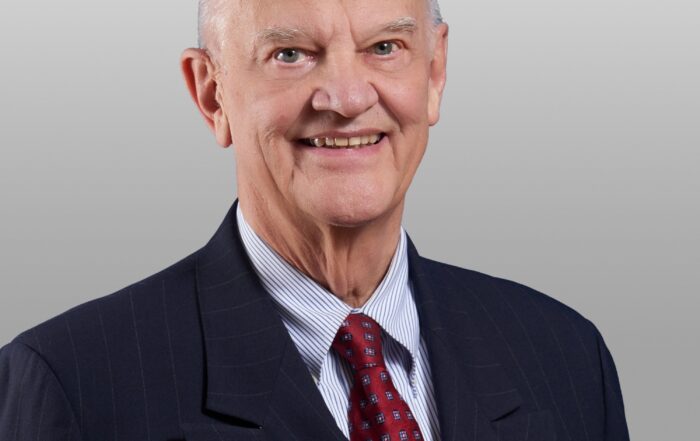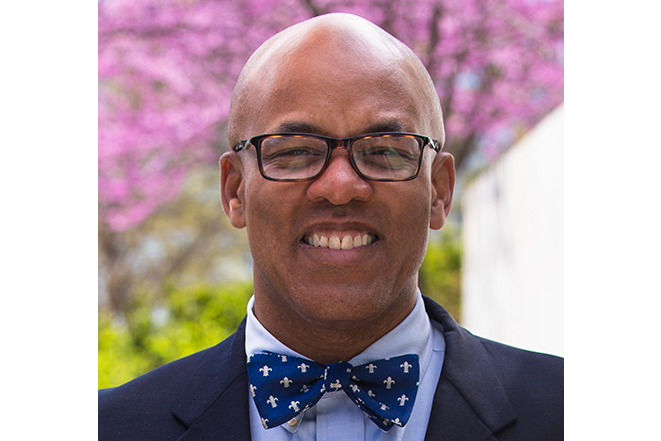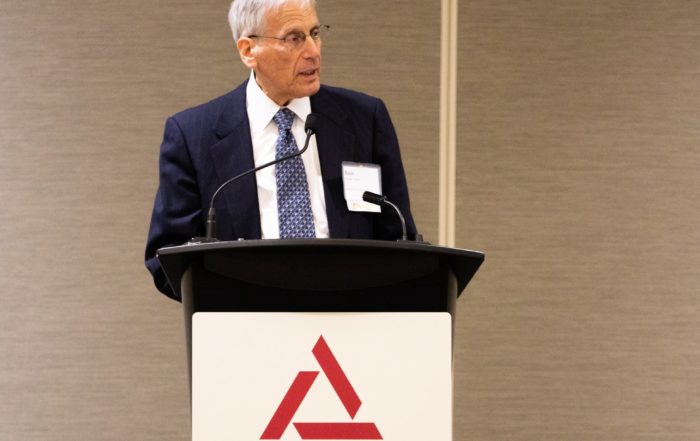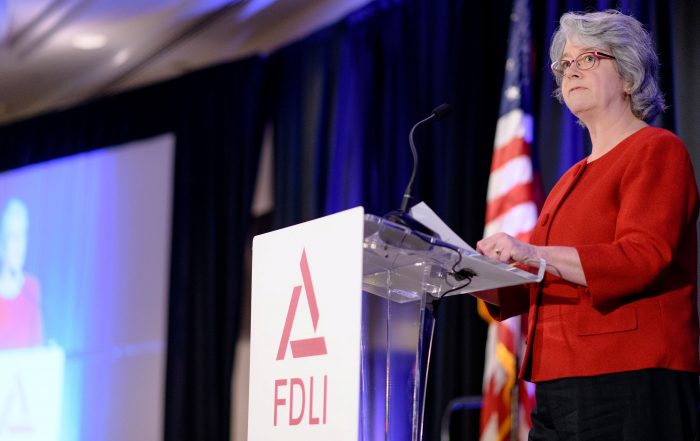Food and Drug Law Institute Eighth Annual Eric M. Blumberg Memorial Lecture
Rick Blumberg’s Role in Supporting the Food and Drug Administration’s Emergency Response Efforts
By John Taylor
December 16, 2020
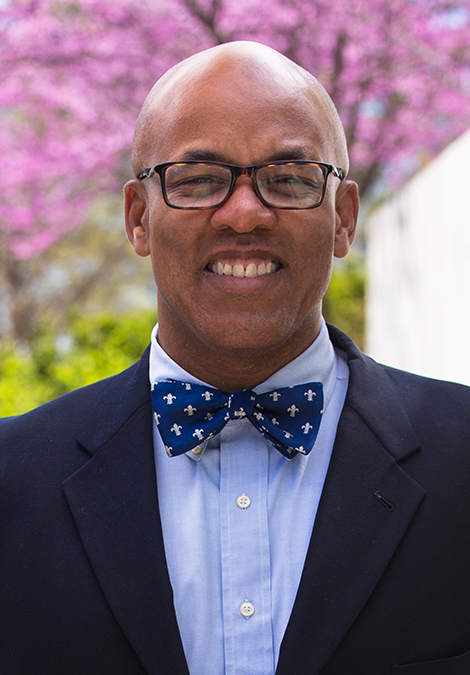
Good afternoon everyone, before I start my lecture, I would like to thank Amy Comstock Rick and the FDLI Leadership and staff for offering me the opportunity to give the annual Rick Blumberg Lecture. I am truly honored to have been asked to speak in this lecture series. Rick was a wonderful person and an invaluable mentor, colleague, and friend. I worked with him for many years at FDA. When Amy asked me to speak, I immediately recalled some of the previous lecturers. They are an impressive and thoughtful group of attorneys and I wondered if there was anything new that I could contribute to this esteemed lecture series, but Amy impressed on me that I could pick my own topic and after looking back on my relationship with Rick and the world that we are living in today, I realized that I did have something to contribute.
Consequently, I am here, and I look forward to speaking to you today regarding my first boss at FDA, Rick Blumberg. Despite the fact that we have been living in a virtual world for many months, and rightfully so, I am still getting used to speaking at virtual conferences; however, the fact that we are having to conduct this conference virtually serves as the perfect backdrop for my topic. Today, I will discuss how Rick fulfilled his public service obligation and his commitment to public service by supporting FDA’s responses to public health crises and emergencies like the one that we are facing today. Based on my long relationship with Rick, I think that this would be a topic that would be near and dear to his heart. If the Agency needed to respond to a crisis or an emergency, Rick was always prepared to provide insight; however, before I discuss this topic more fully, let’s start at the beginning.
For those of you who are not familiar with Rick Blumberg’s work and legacy, let me introduce you to him. Rick spent his entire career in FDA’s Office of Chief Counsel (OCC). He started in the office in 1970, the year after he graduated from Georgetown University Law School. When he died in March 2013, he was OCC’s Deputy Chief Counsel for Litigation. He served in that role for 23 years. As part of his duties, he oversaw all litigation relating to enforcement of the statutes administered by FDA and all defensive litigation arising out of FDA’s programs. He also assisted the Agency by supporting FDA’s emergency response activities and enforcement initiatives. Equally important is the fact that he also nurtured the careers of dozens of food and drug lawyers, like myself, and he is remembered for his aggressive and thoughtful advocacy and his passion for public health. With over 40 years in the office, he is the longest-serving OCC attorney, and his contributions have left an indelible imprint on both OCC and FDA.
I believe that Rick’s aggressiveness stemmed from the fact that he viewed his role as primarily an advocate for the public health. Sure, he was FDA’s lawyer, but he saw himself first and foremost as the advocate for the people, irrespective of where they lived in this increasingly globalized world. As Annamarie Kempic, the current Litigation Deputy, once noted, he saw his role as a behind the scenes presence to act in the public’s interest.[1]
Before I go into greater detail regarding my relationship with Rick, let me also introduce myself—I worked at the Agency on two occasions, from 1991 through 2005, and from 2009 through 2014. I have held several positions at FDA, including Senior Regulatory Advisor to the Commissioner, Acting Director of the Office of Compliance at CDER, Director of the Office of Enforcement, Associate Commissioner for Regulatory Affairs, Counselor to the Commissioner, Acting Principal Deputy Commissioner, and Acting Deputy Commissioner for Global Regulatory Policy and Operations. Rick provided me with invaluable support and guidance in each of these positions, just like he did for my father when he held senior positions at the Agency, but his greatest impact on my career was during the time that he served as my boss in OCC. This was my first and arguably favorite job at FDA.
I worked in the Office of Chief Counsel from 1991 to the beginning of 1997. During that period, and with Rick’s encouragement, I also served as a Special Assistant United States Attorney on the Program Integrity Task Force, the successor to the Generic Drug Task Force. Like Rick, I came to FDA right out of law school, and like all new OCC hires at the time, and this is no longer the case today, I started in the office as a litigator and I specialized in the areas of compliance and enforcement. The fact that I specialized in the areas of compliance and enforcement was due to the fact that I was one of a dozen lawyers hired in OCC that year to help support Commissioner Kessler’s goal of strengthening the Agency’s enforcement credibility. This expansion of the office was noteworthy because it substantially increased the size of the office, and because this group of lawyers, among others, reported to the newly minted Litigation Deputy, Rick Blumberg.
I had met Rick on previous occasions, but I had never worked for him, and he left quite an impression on me from the very beginning. To put it mildly, Rick had a strong personality. Liz Dickinson said it best during her Eric M. Blumberg lecture when she described Rick “as a force of nature.”[2] I cannot think of a better or more accurate description, and I think that those who knew him would agree. Rick was smart and tough, and he was loyal to FDA. Everything he did, he did because he thought that it was in the best interest of FDA and the public, and he expected his staff to behave accordingly. He was a demanding boss, and he had a tendency to expect young attorneys to do things his way based on his broad and deep knowledge of food and drug law and his years of practice. Eventually he would encourage us to develop our own style, albeit grudgingly. He was a beautiful and powerful writer and expected his staff to cultivate the same skill set. He sometimes forgot what it meant to be an attorney who was just out of law school and that newly minted lawyers’ legal careers and legal writing were still in their infancy. Therefore, his expectations could be exceedingly high and a little out of whack with our actual capabilities, but he certainly knew what it took to become a good FDA lawyer and he passed these lessons on to me and my colleagues.
Some of the lessons that Rick imparted were fairly standard. First, he talked about the importance of getting to know the Agency, its programs, its people, and its priorities so that we could provide Agency staff with meaningful advice regarding FDA’s compliance and enforcement activities and various compliance programs. Second, he focused on the development of our technical skills. These lessons included: learning the content of the Act—and I mean all of the Act; analyzing the Act and other statutes, regulations, and judicial opinions; reviewing evidence to determine whether an action is supportable; determining the likelihood of success in court; crafting a referral to the Department of Justice (DOJ); learning how to work with the DOJ attorneys; learning how to bring a case; learning how to prepare witnesses, to conduct discovery, to draft complaints or indictments and briefs; learning how to craft arguments to the court or jury, and much more. He emphasized the importance of applying facts to legal standards, and provided insight on how to draft, edit, and construct compelling narratives so that the judicial decisionmakers could understand the public health and legal import of our cases. In addition, he instructed us on how to negotiate successful resolutions that furthered FDA’s public health goals. This training was informal and hands on. Either you got it or you didn’t. It was sink or swim.
Although the technical grounding was very important and much needed in light of the workload at the time, and the inexperience of certain staff members like myself, the lesson that Rick emphasized the most was the need for us to diligently fulfil the public service obligation that current and former members of OCC shared, irrespective of whether they worked at FDA or in the private sector. Rick spoke frequently of the overarching public service obligation of lawyers in the FDA bar and the opportunities and benefits that public service-related jobs provide.
Rick felt that government lawyers were bound by their public service obligation and that it was their core mandate. From his vantage point, he felt that the public service obligation is something that should permeate everything we do as lawyers. In his mind, this meant your conscience should be your guide, both substantively and procedurally, as you carried out your responsibilities to protect the public health. Through his actions and behavior, he demonstrated his belief that the primary responsibility of a government lawyer is to serve the public, and he believed that if this was done well, it would become the primary source of your job satisfaction. That certainly happened to me. I witnessed this spirit every day when I worked in OCC, and I see it in the lawyers that work there today. Doing what you think is in the public’s best interest every day, and doing it in the most principled way. This was a source of professional and personal fulfillment for Rick.
At the time of our hiring, it was Rick’s goal and expectation, and OCC’s as well, that we would spend our FDA career in OCC. At that time, very few OCC lawyers migrated to other positions in FDA. They often spent their entire career in OCC or after a considerable period of time in OCC, they would move to private practice or private industry. He felt that we all should consider careers in public service or at least aim to work in the public sector at various stages of our professional lives and that we should view our public service obligation as a long-term, continuous responsibility that guides how we conduct ourselves—whether working in the public or private sectors.
In a nutshell, Rick’s view was that public service for lawyers is by no means limited to attorneys in public service roles. It applies to all lawyers throughout their careers, including private sector lawyers advising private sector clients or a lawyer working for or with FDA’s numerous stakeholders. Rick would have found a kindred soul in Mary Joe White (the former U.S. Attorney of the Southern District of New York and the 31st Chair of the SEC), who has said on more than one occasion that it is about lawyers being good citizens as well as knowledgeable, well-trained practitioners, and that private practitioners, not just public sector lawyers, need to absorb and live the public service mandate in order to raise the bar on our real worth as a profession.[3]
Based on my conversations with Rick, I believe that he felt that the food and drug bar was the embodiment of this ideal. Rick talked about the uniqueness of the FDA bar, including the closeness of its members and the collective role that everyone played in protecting the public health. Rick valued the collective sense of community in the FDA bar, and later I will expand upon how the close-knit nature of this group has benefited the public on numerous occasions but particularly in response to a public health crisis or emergency.
Eventually, with Rick’s oversight and the help of wonderful supervisors, mentors, and colleagues during those early years like Mike Landa, Catherine Copp, Bob Spiller, Phil Derfler, Leslie Kux, Annamarie Kempic, Linda Kahan, Diane Maloney, Denise Zavagno, Michael Petty, Beverly Chernaik, David Horowitz, Mark Brown, and Mark Raza just to name a few, I began to develop my own portfolio. As a part of that process, Rick started giving me matters and cases that had a unique aspect to them; they were increasingly connected to public health crises or emergencies, and they often involved deaths, injuries, or a high potential of direct and/or indirect harm to patients or consumers. The significance of this was lost on me at the time. I merely viewed it as part of the ongoing learning/hazing process and a way to better understand the import of our roles. Instead, this would become one of the cornerstones of my FDA career, both in the public and private sector, and it cemented my connection with Rick during my various positions in FDA. Based on the lessons that I learned from Rick and others, this work became a subset of my duties in OCC, and when I moved to the Office of the Commissioner, it continued to be a part of my portfolio, but as the client who benefited from OCC’s legal services. My first “crisis” in the Office of the Commissioner was the oversight of the blood supply, and one of the OCC attorneys who was working very closely on the matter was Rick Blumberg.
Rick was particularly adept at this type of work. I think that the work that Rick did in this area is overshadowed by other aspects of his legal legacy, but I worked with Rick on crises and emergencies literally until the day he died (we were working on the NECC meningitis outbreak), and he was never better than when he was handling these sensitive matters. I always found this interesting because in order to respond to a crisis or an emergency well, you need to organize a team where there are clear lines of communication, management, and decision-making, and Rick was not naturally a team guy. If you want to learn more about Rick’s aversion to teams and OCC’s transition from the “solo practitioner” model to teams focused around product Centers, I once again refer you to Liz Dickinson’s Eric M. Blumberg lecture.[4] OCC began the transition to teams at the midway point in my OCC career, so I was no longer in OCC when it came to full fruition. Nonetheless, from the time that I left OCC to the end of my second tour at FDA, I was responsible for helping FDA respond to crises and emergencies, and I think that the change to a teams organization enhanced OCC’s ability to support FDA’s emergency response efforts, while at the same time allowing Rick to be Rick. I will explain why as my lecture progresses.
In any event, despite his aversion to teams, he would immediately dive in and execute his role as a team member. Rick would ask Agency managers about their goals and desired outcomes and work with them to develop acceptable options and specify associated legal risks. One of Rick’s enormous contributions to OCC and FDA was his willingness and his unique ability to challenge his colleagues and staff to approach legal problems in new ways. I am understating this trait, but this unique skill was much needed and on open display when Rick was helping the Agency confront a crisis or an emergency.
Decisions about what regulatory or enforcement authorities to use in any situation—and the legal implications for such use—can only be fully informed by an understanding of the effect the action is likely to have on FDA’s stakeholders, especially consumers and/or patients. Attorneys, like Rick, with visibility into the dynamics of FDA’s various stakeholders, including those directly regulated by FDA, are important to this analysis.
As an attorney and manager at FDA, I always considered this to be very important but especially when there is a public health crisis or tragedy, or both. OCC attorneys have a vitally important, and sometime underappreciated, role in helping FDA respond to public health emergencies. OCC attorneys help construct strategic plans designed to mitigate the impact of the crisis or emergency and ensure compliance by regulated parties to the extent that it is necessary. Based on my personal involvement in FDA’s oversight of the blood supply in the 1990s, FDA’s response to the proliferation of internet sites selling unapproved drugs and the introduction of street drug alternatives and GHB precursors in the late 1990s and early 2000s, and FDA’s plans for the inspection and regulation of compounding facilities during and after the NECC meningitis outbreak in 2012, I can tell you that these are just a few examples that come to mind during Rick’s tenure as Litigation Deputy. I could list many more.
Whether the situation involved foodborne illness outbreaks, natural disasters, intentional acts like product tampering or terrorism, or serious risks of infectious disease such as pandemic influenza, Rick, Ann Wion, and other OCC lawyers worked in close cooperation with FDA and other federal agency officials to protect the public health. In all of these tasks, Rick applied his institutional knowledge, his well-honed legal skills, such as critical thinking, writing, editing, determining multiple legal options, and applying facts within the legal framework as part of the Agency’s effort to obtain a positive public health outcome. Rick and OCC also helped the Agency with any communication issues and/or legislative, regulatory, policy, or compliance initiatives that stemmed from the crisis or emergency. Since I sometimes had the unenviable task of explaining our actions to the Department or White House, this support was much appreciated.
In addition to their analytical skills, Rick Blumberg and Ann Wion brought exceptional creativity to agency legal work and were invaluable in helping the Agency achieve its public health goals in the midst of a crisis. Rick and Ann and their respective teams did not limit their advice to what was legally unacceptable. That is not going to cut it in the midst of a crisis or an emergency. Instead, they helped FDA and its staff move quickly to make decisions, set direction, and be transparent about what the Agency was doing.
Rick’s knowledge and experience also made him perceptive about the needs of the industries that FDA regulates and the stakeholders that use their products. Rick understood the importance of FDA working collaboratively with industry and FDA’s other stakeholders during these crises. When searching for positive results, he would often ask industry at meetings to put themselves in the shoes of the consuming public. He argued that such a close and collaborative working relationship with industry and the bar that represented them was essential to providing sound legal advice in the middle of a crisis. One illustrative example of this point is the Counterfeit Lipitor recall in 2003. Positive public health outcomes and the ensuing criminal and civil actions could not have occurred without crucial assistance from Pfizer and its excellent legal team.
Moreover, he also recognized that it was critically important for attorneys from different agencies to work collaboratively to achieve positive public health outcomes. The effective collaborations of agency attorneys from FDA, CDC, USDA, Homeland Security, and other agencies were essential to the government’s successful protection of Americans from the risks of counterfeit drugs, monkeypox (after imported African rodents had infected prairie dogs in the U.S.), Creutzfeldt-Jakob disease before and after a BSE contaminated cow was found in the United States, the Deep Water Horizon oil spill, the Fukishima earthquake and tsunami, and the previously mentioned NECC meningitis outbreak.
The importance of internal and external teamwork and the ability to manage the team dynamic is one of the essential elements for a successful emergency response effort. As I alluded to earlier, OCC’s transition to teams strengthened the strong support that Rick and his OCC colleagues provided to me and the other Agency managers responsible for coordinating the Agency’s response to such emergencies. One of the best ways to craft a successful response is to pull those with expertise in different areas into the process of legal analysis and advising. An individual OCC attorney may not have visibility into regulatory activities across various disciplines or program areas, or Centers, particularly as FDA has become larger and increasingly more complex. Therefore, FDA managers benefit from the different inputs from various OCC team members. These insights are needed to better inform the Agency’s actions during compelling public health matters where the choice of the appropriate regulatory and enforcement tools is critical.
So, back to my opening and why I picked this topic to illustrate one of Rick’s major contributions to OCC, FDA, and the public health. This conference is being held virtually due to the ongoing pandemic, and we are witnessing the response in real time. Because COVID-19 is a new disease, caused by a novel (or new) coronavirus that has not previously been seen in humans, an otherwise complex response has become extraordinarily complex. There are certainly other factors that have complicated the federal government’s response, but my remarks are focused on FDA and its public health mission.
From the beginning of this public health emergency, FDA has taken an active leadership role in the federal government’s response to the pandemic and OCC, under Stacy Amin, has been tasked with supporting this effort. One of the first steps that FDA took was to establish an internal cross-agency group to manage the Agency’s efforts to protect the public health. These efforts, and this list is not all inclusive, include:
- facilitating the development and availability of medical countermeasures to diagnose, treat, and prevent COVID-19 (in some instances this has required the exercise of regulatory flexibility for product developers involved in the development of medical devices, diagnostics, therapeutics, and vaccines);
- working closely with partners throughout the government and academia, and with drug and vaccine developers to explore, expedite, and incentivize the development of these countermeasures;
- facilitating increases in the country’s national testing capacity;
- ensuring continued access to necessary medical products;
- maintaining the safety of the nation’s food supply by collaborating with the food industry and its federal and state partners and by providing best practices for food workers, industry, and consumers on how to stay safe and keep food safe;
- monitoring and surveilling the medical product and food supply chains for potential shortages or disruptions, and helping to mitigate such impacts;
- working closely with manufacturers to help ensure they continue to notify the Agency of any permanent discontinuance or interruption of drug (human and animal), biological product, and device manufacturing; and
- exercising its regulatory authority to protect consumers by preventing the sale of fraudulent products.
In addition, despite the reduction of on-site domestic surveillance inspections and the continued pause in foreign routine surveillance inspections to safeguard the health and well-being of its staff, FDA continues to conduct mission critical inspections both domestically and abroad and use alternative approaches to ensure FDA-regulated industries are meeting applicable FDA requirements. For example, in the context of pharmaceutical facility inspections, FDA is utilizing its authority under section 704(a)(4) of the Federal Food, Drug, and Cosmetic Act to request records in advance of or in lieu of drug inspections, and it is also utilizing establishment inspection reports from capable foreign regulatory authorities under the Mutual Recognition Agreement (MRA). Both options help inform decisions related to drug approvals or addressing drug shortages. Evaluating alternatives to onsite inspections is certainly an area that would have interested Rick.
The FDA, along with other HHS Operating Divisions and federal, state, and local agencies and public health officials across the country, continue their critical work to protect the public health during the pandemic. The FDA Advisory Committee meetings regarding the EUA authorization of the two vaccines, and the possible authorization of both, is a crucial step in fighting the pandemic. The work of Pfizer/BioNTech and Moderna is to be applauded, but there is still more to do to address this public health crisis and future crises, and these activities will likely involve a majority of the people in this room due to the unique role of the food and drug bar.
Looking into the future, FDA’s response activities will continue to focus on mitigating the effects of the pandemic, but Agency leaders have also begun to articulate their thoughts on the lessons learned during the ongoing response to the pandemic that could strengthen the Agency’s operations in the future. As this pandemic evolved, it is not surprising that some FDA processes and policies needed to be adjusted to accommodate the urgency and severity of the pandemic. As the pandemic continues, FDA will need to continue to adjust their processes and guidance, as necessary, in order to ensure the adequacy of the Agency’s response. These adjustments will undoubtedly lead to insights that will be helpful to the Agency and its stakeholders, and if catalogued well, could serve as a resource for the public and health care community, not just in its response to an emergency, but in the Agency’s ability to learn from the ongoing work and apply the experience in the future as part of FDA’s fulfillment of its public health mission.
Pursuant to Commissioner Hahn and other senior managers’ instructions, FDA staff have begun to identify the lessons learned from this pandemic and what adjustments may be needed, not just to manage this or future emergencies, but to make FDA itself more efficient in carrying out its regulatory responsibilities. I hope that the scope of this review is broad and this covers operational, regulatory, legal, policy, and legislative issues.
I also hope that the lessons learned from managing this pandemic will potentially lead to improvements at FDA, to the extent that they are needed, in regard to Agency operations, processes, policies, and possibly new authorities. Since we are currently living in a conflict-driven world where facts are malleable and discourse is unduly provocative, let me be clear. This is not a criticism of FDA but merely an articulation of what constitutes good management practices. However, to accomplish this goal, the Agency will need to need establish a disciplined process that evaluates whether, and to what extent, the innovations and adaptations that were implemented during the pandemic crisis worked and would be appropriate to implement outside of a pandemic situation. This process should also include stakeholder involvement to the extent that it is appropriate, and then and only then should FDA determine whether it will incorporate these changes into standard FDA practice and procedures with the expectation that they will make FDA an even stronger agency and help it fulfill its mission of protecting the public health. As I noted during my presentation at the FDLI Annual Conference in October, significant changes, innovations, and improvements have occurred in the wake of past crises and emergencies including some that are being used as part of the current response. Some of the initial areas that are likely to be explored/evaluated, and again this list is not exhaustive, include:
- new approaches to facilitating the development of new vaccines, treatments, and diagnostics;
- remote regulatory assessment tools to verify compliance with safety and quality regulations;
- how inspections are conducted;
- new ways to work with federal, state, and local partners to monitor the medical product and food supply for indications of interruptions or shortages;
- the issuance of EUAs and the EUA process;
- the use of Real World Evidence (RWE);
- clinical trial reforms, decentralized trials, use of adaptive trials, patient-reported data, and use of master protocols;
- collaborative relationships between, industry, academia, and government;
- the use of the integrated lifecycle approach;
- digital tools and leveraging data to support decision-making;
- remote programming and/or monitoring of devices;
- diagnostic policy in general, HHS LDT policy in particular;
- the importance of flexibility and the ability to rapidly adapt policies to meet evolving circumstances as new information becomes available;
- the use of advanced manufacturing technology and its role in increasing manufacturing capacity;
- the safety and security of the food supply, not just in the normal course of events but especially in times of crisis; and
- methods to monitor, prevent, and/or mitigate medical product shortages.
As part of FDA’s response, the Agency has stated that it is committed to relying only on the best science and the most rigorous data in support of advancing innovation and discovery. This is a laudable goal, and it is imperative during this public health emergency for FDA to maintain its high standards for evaluating products and making sure that the benefits outweigh potential risk. To do this, FDA needs to ensure that its decisions are always rooted in science, but as Rick and OCC would be quick to point out, and rightly so, it is not just about the science. Most agency decisions will involve science, policy, and the law, and OCC attorneys will have an important role to play.
Decisionmakers at FDA have to make regulatory decisions based on the facts, scientific understanding, and legal framework existing at the time of the decision. This is particularly true in a crisis or an emergency because the facts are often not completely known at the time that a decision must be made, and the decision timeline is often exceedingly short. As I described earlier when I was talking about the role that Rick performed so well, lawyers significantly contribute to resolution by asking probing questions about all aspects of the matter, including the nature of the evidence and the scientific support for any position. The lawyers, scientists, and policymakers must work closely together to understand how the facts of a particular situation fit together within the regulatory framework and how a potential decision makes coherent, defensible sense. Utilizing this set of analytics is important during the response to the current pandemic, and these same analytics will be important as a part of the evaluation of the lessons learned so that the Agency can achieve the goal of having positive public health outcomes that are scientifically sound and legally supportable.
It is also important to note that similar analytics are being utilized by industry and other stakeholders when they are grappling with their response to a crisis or an emergency, and in my experience, the role of the attorney in the private bar is often very similar to the role of the attorney in OCC. In addition, the most successful responses that I have been a part of have involved FDA, industry, and other stakeholders working together in furtherance of a positive public health outcome. I would argue that this same positive collaborative spirit will be crucial when FDA begins to evaluate and seek input regarding the possible implementation of some of the lessons learned during the pandemic.
So, in closing, I just wanted to reiterate Rick’s belief in practicing law in the spirit of public service and remind you of Rick’s long and enduring support to FDA’s public health mission and the important work that he did to fulfill that mission by supporting the Agency’s crisis and emergency response efforts. I am confident that he would have been an asset in regards to the Agency’s current response, and I am equally certain that as we face some potentially dark days ahead, that he would want us to reflect on our public service obligation and the benefits it bestows upon us as we work collectively to respond to this and future emergencies.
I hope that you have a safe and healthy holiday season, and I look forward to seeing you in person next year.
[1] Annamarie Kempic, First Annual Eric M. Blumberg Memorial Luncheon Address (December 11, 2013).
[2] Elizabeth Dickinson, Sixth Annual Eric M. Blumberg Memorial Luncheon Address (December 13, 2018).
[3] Chair of the Securities and Exchange Commission Mary Joe White, Public Service: An Obligation and Opportunity for Lawyers (January 3, 2015), https://www.sec.gov/news/speech/chair-white-speech-Association-American-Law-Schools.
[4] Elizabeth Dickinson, Sixth Annual Eric M. Blumberg Memorial Luncheon Address (December 13, 2018).

